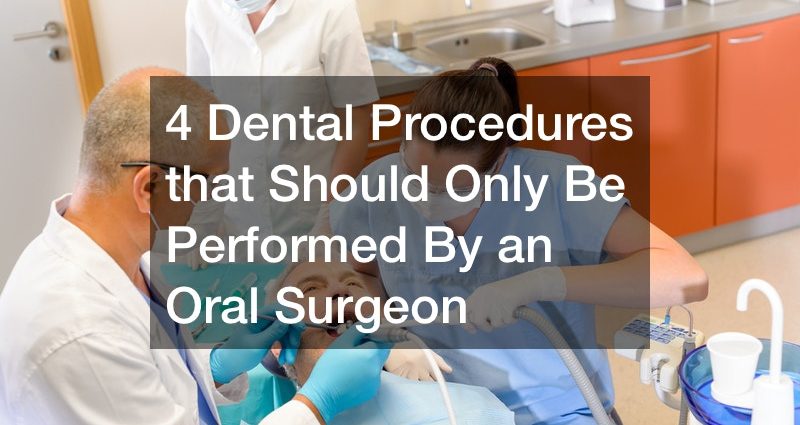
Dentistry can be confusing. There are so many different terms and various types of practitioners, like dentists, dental hygienists, and oral surgeons, among others. Which one you need to see depends on what you need to get done. When it comes to surgeries, you’ll typically need to visit an oral surgeon.
One common procedure that requires an oral surgeon is wisdom teeth removal. When it comes to caring for your loved ones, you’ll want to find the best oral surgeon for wisdom teeth removal. While removing wisdom teeth is a generally low-risk procedure, it’s still wise to work with the best oral surgeons.
Often, dentists and oral surgeons practice together, or your dentist can recommend an oral surgeon. It’s smart to talk with a dentist and dental surgeon if you’re suffering from tooth loss or other serious issues.
When it comes to an oral surgeon and dentures, your dentist can help you understand what’s needed. As for receiving oral surgeon services, you may have to be put under anesthesia so that the surgeon can perform the necessary dental procedure.
If you’re suffering from any dental issues, schedule an appointment with your dentist or oral surgeon right away. The earlier you treat your condition, the better.

There are a number of problems that people experience with their teeth that require more than a trip to the local dentist. While dentistry is often seen as a general practice, there are different types of specialists that take care of different procedures. Oral surgery is performed by oral and maxillofacial surgeons in order to give their clients healthy smiles, just like a dentist, but with more work than your regular cleaning.
It’s likely that you’ve encountered the need for an oral surgeon before. Here are some of the most common oral surgery procedures:
- Wisdom teeth
One of the most common dental procedures is the removal of the wisdom teeth, or third molars. In some cases, these teeth come to the gum line with enough room. But in many cases, these teeth become impacted, and the jaw is not large enough to accommodate for these new teeth. They fail to emerge in their proper spots and can become trapped between the jawbone, gemlike, and other teeth. This can be painful, and will often swell or become infected.
Dentists will most often recommend that these teeth be removed by a licensed oral surgeon in order to prevent more pain or damage to the jaw. Impacted teeth can often lead to cysts or tumors in the mouth which can destroy the jaw, leading to further medical conditions and probability of surgery. - Tooth loss:
For those who have lost one or more teeth, dental implants are often a recommended option. To substitute lost teeth, custom implants are anchored in place of the lost tooth to allow for normal jaw alignment, chewing, biting, as well as prevent tooth sockets from becoming infected by foreign substances, like food.
Those who undergo dental implant surgery must have adequate bone density, otherwise the implant can fracture the jaw or simply fall out. These candidates must also promise to maintain proper oral hygiene to prevent further infection or decay. - Snoring/ Sleep apnea
By means of a newer treatment, snoring and sleep apnea can be treated or cured by removing the soft tissue of the back of the mouth or lower jaw in order to reduce blockage. This is usually only performed following noninvasive procedures that have proven to be ineffective. - Facial Injury
In the case of a facial injury, often caused by sports, oral surgery may be necessary in order to correct a fractured jaw or facial bone. This may require extensive treatment, just as any other broken bones do. Since you cannot cast the jaw, many who undergo facial surgery will have their jaws wired shut to prevent shifting.

